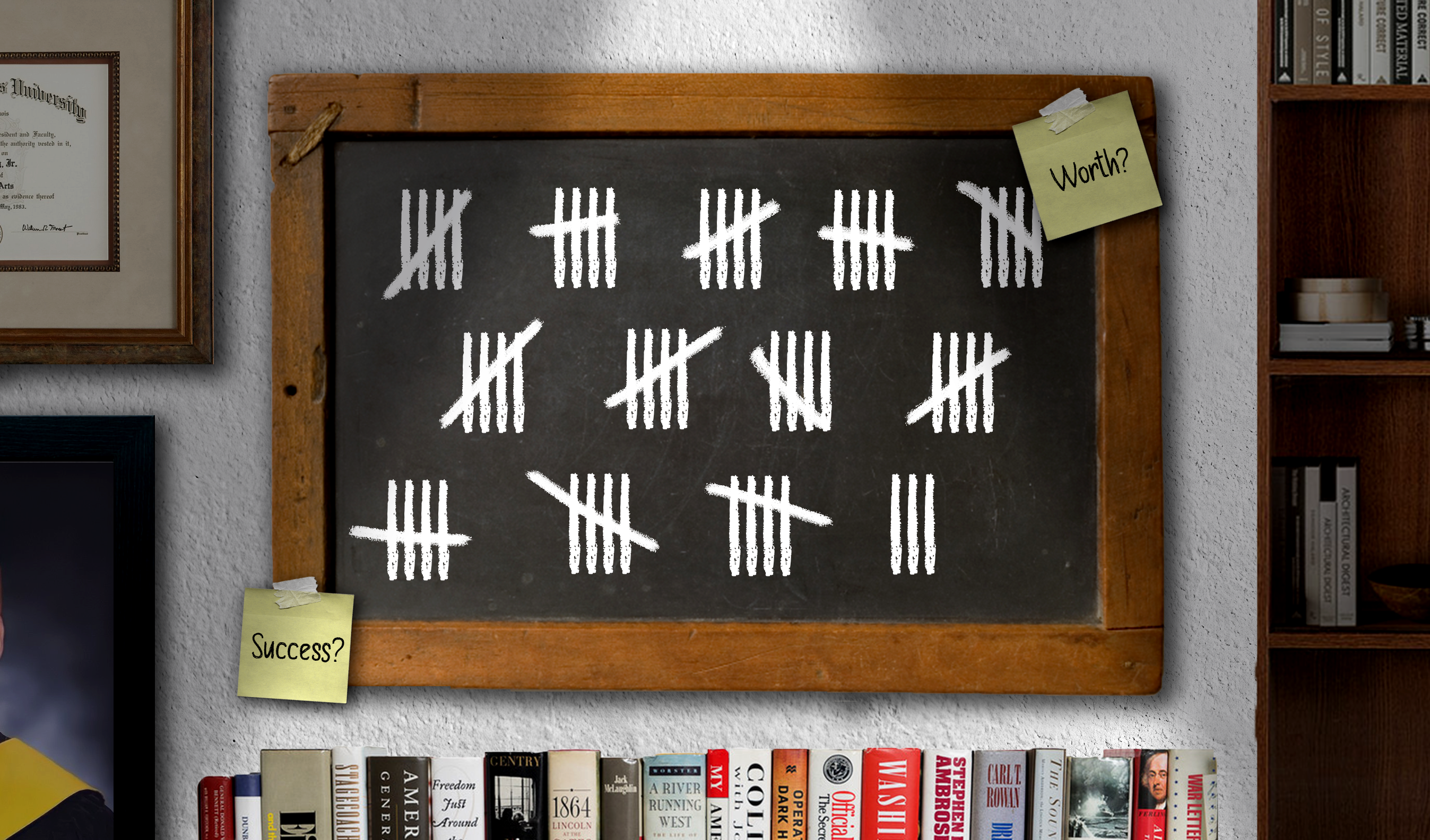Your Degree Isn’t Your Destiny
If life were a chalkboard with each tally mark representing an achievement, how full would yours be—and how many would you need to be successful?
For Mrs. Bea Bagac-Lataza, an alumna of De La Salle University – Dasmarinas’ (DLSU-D) College of Tourism and Hospitality Management (CTHM), and now the CEO and co-founder of the Dubai-based tech startup GoMommy.AE, the marks seem endless. Sitting back in her contemporary, Mediterranean-inspired office with her co-founder and husband, Kharl Lataza, she reflected on her experiences. From her beginnings as a Tourism and Hospitality major to becoming the founder of a service tech company poised to expand into the Philippines and the United Kingdom (UK), she shared fascinating insights into her entrepreneurial approach to life, taking risks in her career, and her fiery determination to tackle challenges head-on.
The Mirage of Success
As the conversation with Mrs. Bagac-Lataza unfolded, it became clear that there was no one way to measure success. Even the generally prescribed cultural views society deems fit to bestow upon its inhabitants at any given moment are gossamer thin, ever-shifting with the ebb and tide of tradition, politics, and evolving discourse. The idea of success—and who is deemed capable of attaining it—has transformed, much like the battles for civil liberties that have come and gone with it. In the same vein, the qualities that define success have shifted over time, and to this day, no definitive answer exists. There are only the broadly accepted parameters: the perception of a fulfilling home life, general disposition, and financial stability.
In a society that has developed smudged yet present socioeconomic lines, education is deemed the great equalizer—often regarded as the key to a better life. In 2025, a degree is more than just paper; it’s a way to rise above one’s status, often tied to a can-do attitude to seize life by the reins and take control.
No Blank Slates in Fate
A true entrepreneur, Mrs. Bagac-Lataza was steadfast in her idea of building upon existing skills and capitalizing on market niches. She explained her inspiration, saying, “I was inspired by the story of Canva. The owner was a woman, and she wanted to have a DIY poster and banner marketing. As a woman as well, with a small business in the Philippines—non-tech ako—” she shared, her eyes glinting with the passion of a storyteller, “—I wanted to have something na madadalian ako. I don’t know how to build a website. So the vision started: How can we empower people like me na non-tech to create a website that would be easier for them?” Even in the website’s name alone, elements of good-humored yet strategic thinking are present to compete with similar services. But for her, their customer-centered approach remains a core company value—their true edge in the market.
Mrs. Bagac-Lataza’s story serves as a reminder that success is rarely linear. There are often periods where one feels they’ve taken one step forward and two steps back, and for many, the path from education to career is filled with unexpected turns.
“The number one skill that’s necessary to becoming an entrepreneur is to become very adaptable. Maraming tao kasi, they think of a business as easy as 1, 2, 3. They think if they have the capital—that’s it! It does not mean that if you have capital, you can succeed. If you are not adaptable enough and don’t have the endurance to endure pain, don’t waste your money in making a business. Develop your personality first before you divulge yourself to a higher commitment level. Business is a different level of commitment,” Mr. Lataza explains.
“Kaming dalawang mag-asawa, we’ve had multiple ventures in the past and even now, but just like Mark Zuckerberg says, you have to fail more than you succeed. It will only take one or two ventures that will give you a break, but before that’s going to happen, you have to fail a lot of times. Why? That’s self-growth,” he adds.
With the pressure of aging and responsibility combined, it’s easy to feel overwhelmed. By the age of 20, you are already past a quarter of your life expectancy. Cognitively, you’ve spent a good chunk of it without the agency to truly leave your mark upon the theoretical board. Meanwhile, time remains an ever-present, marching force in our lives, and the pressure to succeed looms large.
For university students, the societal pressure to align career paths with fields of study is undeniable. What is less often discussed, however, is just how many people do not ultimately align with their initial degrees. In fact, a 2024 study from the United States reveals that 52% of university graduates are underemployed, finding themselves in roles that do not fully utilize their degrees. Furthermore, many graduates transition into industries far removed from their original fields of study within five, ten, or even twenty years after graduation.
Mrs. Bagac-Lataza’s entrepreneurial leap may be far unconventional, but it reflects a growing trend within the Lasallian community. Initial data from the Advancement and Alumni Relations Office’s (AARO) efforts to maintain communications with alumni through its highly accessible Alumni Profile Update form reveals that above 30% of alumni who have responded work in careers outside the scope of their initial degrees. These statistics underscore a critical truth, as also discussed by the entrepreneur: cookie-cutter career paths aren’t for everyone.
Success is a deeply personal journey, shaped more by adaptability, risk-taking, perseverance, and ambition than by a single choice made as a teenager.
Embrace Risk, Escape Regret
For those who do not quite have that same fiery entrepreneurial spirit of Mrs. Bagac-Lataza and Mister Lataza, taking risks can be understandably daunting. It is both a great burden and a great privilege to direct your destiny, but paths cannot be carved through sheer will alone. It would be remiss not to acknowledge the probabilities of failure, whatever form that may take for the person stepping into the unknown. Ultimately, this is what makes the prospect of unstable careers so bone-achingly petrifying—the acrid sting of failure.
“I’m the first one to overthink. Dapat may plano, dapat may contingency—I also learned that from our marketing subject in La Salle, Mrs. Bagac-Lataza says with good humor, speaking about the anxiety associated with shifting life trajectories so dramatically. “But my husband (Mr. Lataza) taught me that you don’t really need to have a concrete plan—you just need to be calm and think about how you’ll figure it out. Find the right solution. After that, we move forward.”
She further cites one of her favorite professors, Center for Innovative Learning Programs (CILP) Director Paul Anthony Notorio, for encouraging her to think outside the box and pursue creative strategies when tackling issues. “Entrepreneurship, it’s being a risk-taker. Life is gambling.” Though intimidating, this perspective affirms the idea that those who take risks and step outside conventional life paths often find themselves carving out their unique version of success.
Developing a Support System
In an interview with AARO Director Dr. Jefferson Buenviaje, he emphasized the vital role of community in post-graduation success and the University’s commitment to supporting students and networking long after they leave. “We want our students to know that even after graduation, DLSU-D is here to provide guidance and support to their career paths. Hindi siya natatapos lang after graduation,” he shared.
Dr. Buenviaje highlighted AARO’s latest initiative to partner with SeeMeSolutions (SeeMeSOL), designed to connect Lasallians with employers by integrating their curriculum vitae directly into their profiles. In addition, the AARO organizes bridging programs, upskilling seminars, and certification courses for current and former students, which are promoted through official social media channels and regular email blast updates to alumni.
The significance of developing a support system is not lost on alumni like Mrs. Bea Bagac-Lataza, who understands the value of perseverance and community. When asked what advice she would give students preparing for long-term careers, she responded passionately: “As young as you are, give it a try. Don’t be afraid.” She encourages students to seize the day, take calculated risks, and think beyond the syllabus.
***
It’s easy to fall into the trap of thinking that choosing the “wrong” degree means wiping the board clean—a tabula rasa haunted by the ghosts of what could have been and the hastily buried whispers of regret. But as Mrs. Bagac-Lataza reminds us, in a world obsessed with linear success, growth can be found everywhere. The tallies on the chalkboard remain, no matter how imperfect or painful they may be to revisit. Our worth isn’t solely defined solely by our goals or the ease with which we achieve them; it’s also shaped by the courage to fail, reassess, and try again.
Originally published in Heraldo Filipino Volume 39, Issue 1
Graphic art slider by Ashly Maquirang



